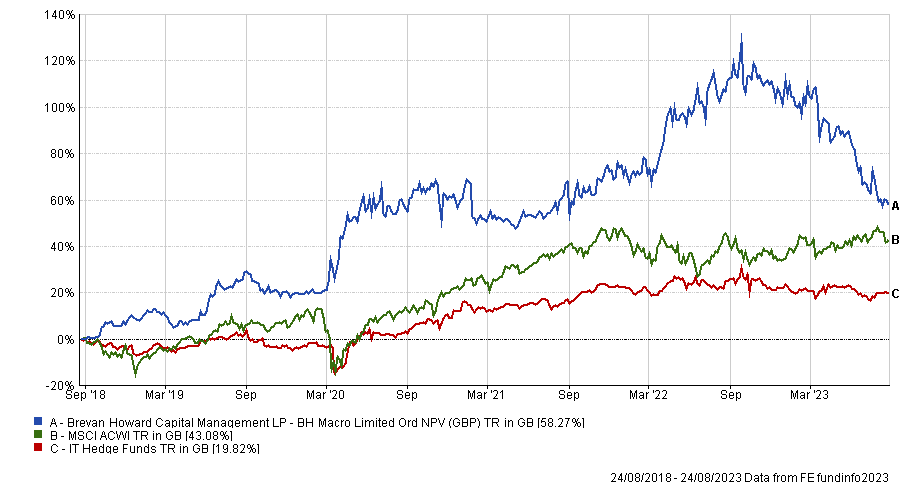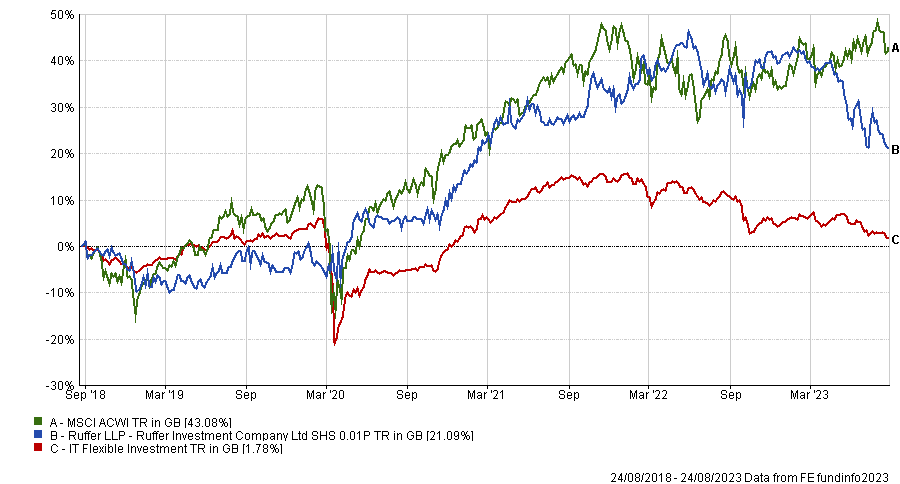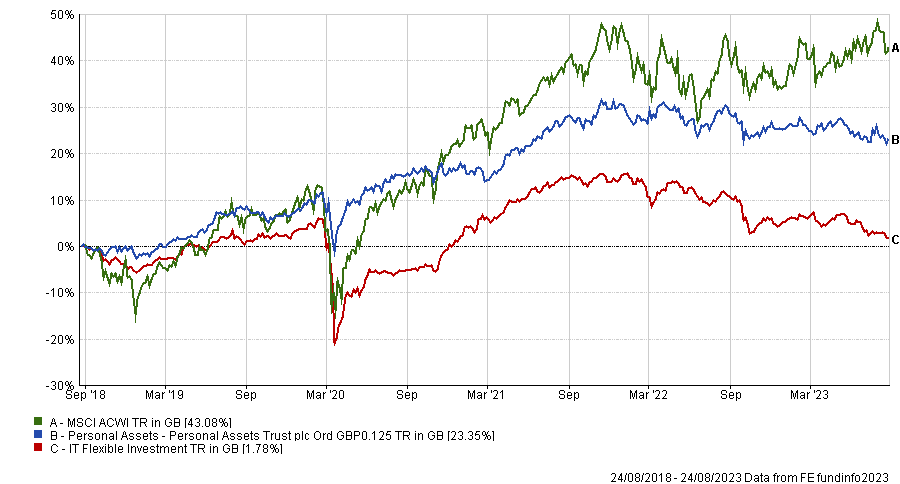The decision to merge away abrdn Global Absolute Return Strategies after prolonged underperformance has caused some to question the future of all absolute return funds, but RBC Brewin Dolphin’s John Moore thinks some still have merit.
Abrdn announced in late July that the fund – commonly known as ‘GARS’ – would no longer be available to investors. This was quite the turnaround as, at its peak in 2016, it was the biggest fund in the UK with assets of £45bn.
Absolute return funds have been hampered by rising interest rates. The typical aim of making a 5% annualised return with little volatility might have been attractive when the base rate was 0.5% but now looks like an expensive way of generating a similar return to cash.
However, RBC Brewin Dolphin senior investment manager Moore said: “As interest rates begin to peak, things may improve for absolute return funds and there is an opportunity to change the narrative around them to one where they can offer less volatility than equities and potentially higher returns than bonds.”
He highlighted three funds that “offer something different to investors” and could provide defensive returns. Interestingly, none are from the IA Targeted Absolute Return sector and all three are investment trusts.
BH Macro
The first is BH Macro, which was set up to give retail investors access to the Brevan Howard Master fund (this is typically only available to high-net-worth individuals and other smaller hedge funds).
It mainly invests in fixed income and foreign exchange instruments, although it has ‘peripheral exposure’ to assets such as equity, credit and commodities. It has around 125 portfolio managers and traders who invest using a combination of macro directional and macro relative value strategies.
Performance of fund vs sector and index over 5yrs

Source: FE Analytics
As the chart above shows, the trust has comfortably outperformed its average IA Hedge Fund peer over the past five years. It can also be seen how the trust has rallied when equities have sold off, although it has been hit by a hefty drawdown in recent months as stocks have recovered.
“BH Macro is by no means fool-proof and comes with a relatively high charge, but it provides a hedge against changing interest rates and market volatility,” Moore said. “For the most part, it is uncorrelated with equity markets, which instinctively feels valuable – particularly in uncertain times.”
The trust is trading on a discount to net asset value of 12.6% and has ongoing charges of 1.88%.
Ruffer Investment Company
Ruffer aims to achieve returns of at least twice the Bank of England’s base rate, holding a wide range of investments such as inflation-linked bonds, defensive currencies like the Swiss franc and equities that its management team perceives to be undervalued or under-owned.
“Ruffer is a little more straightforward than BH Macro, but likes to take a contrarian approach. You will find an odd mix of assets among its holdings, but you’ll also find the management team buying well-known companies that may be out of favour for one reason or another. Ruffer comes with a bit more volatility than your typical absolute return strategy, so will require patience,” Moore explained.
Performance of fund vs sector and index over 5yrs

Source: FE Analytics
The trust also protects itself against markets when both stocks and bonds are falling in tandem by using derivative strategies and non-conventional assets. This was reflected in 2022, when Ruffer made a total return of 7.1% while the MSCI AC World lost 8.1% and the Bloomberg Global Aggregate index fell 5.7%; its average IT Flexible Investment peer was down 9% in this market.
That said, it has also been losing money more recently after the stock market rallied hard thanks to the performance of a handful of stocks, particularly those in the US tech space.
Ruffer Investment Company is trading on a discount to net asset value of 5.2% and has ongoing charges of 1.07%.
Personal Assets Trust
Personal Assets’ primary aim is to preserve its shareholders’ wealth over time, in keeping with the other strategies run by Troy Asset Management.
The portfolio is built around quality blue-chips, index-linked bonds, gold and cash, which are all classic defensive holdings. It has outperformed its average IT Flexible Investment peer by a significant margin over the past five years, but the cautious stance means it is behind global equities.
Performance of fund vs sector and index over 5yrs

Source: FE Analytics
“Personal Assets has typically annualised returns of around 5%, but the shares are now just under 9% below where they were in November 2021. Changing interest rates have been one influence on that, but so too has the profile of businesses that have been doing well,” Moore said.
“The falling share price is an indicator that the trust finds itself in a tricky spot, but its management team’s tendency to do the opposite of where sentiment is going means it could be poised to bounce back.”
Personal Assets is trading on a discount of just 0.6% and has ongoing charges of 0.65%.




